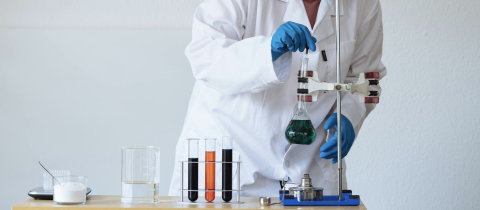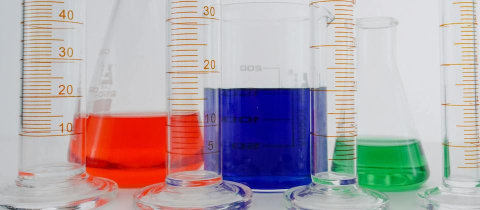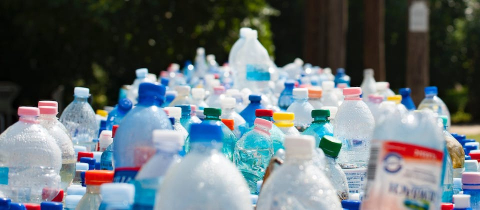The tentacles of COVID-19 reach into every area of life. I’ve been getting a flurry of calls about vacuum cleaners, air filters, and cordless hair clippers. Sales of these items have increased because of concerns about the coronavirus with people wanting to reduce any possible transmission by dust or air. People have even resorted to cutting hair at home instead of venturing to the hairdresser. But the calls I have been getting about these items have nothing to do with the virus. Not the coronavirus anyway. There is a different kind of virus that is infecting the population, and that is California’s bizarre Proposition 65 that is unnecessarily scaring people at a time when we don’t need any more stress in our lives.
It seems that members of the California government are particularly knowledgeable about toxicology. They must be because back in 1986 they passed legislation, known as Proposition 65, that led to people being confronted with signs and labels warning about the presence of chemicals “known to the State of California to cause cancer, birth defects, or reproductive harm.” Surely these law-makers must have had special insight into the health effects of the plethora of natural and synthetic chemicals to which we are exposed on a daily basis because no other regulatory agency anywhere has deemed it necessary to provide such warnings. But since manufacturers are not keen to produce products with different labels for different markets, we all get treated to labels that threaten us with the prospect of cancer should we handle items such as vacuum cleaners or Tiffany-style lamps.
Proposition 65 prohibits businesses from knowingly exposing individuals to chemicals that cause cancer or developmental problems unless they provide a clear and reasonable warning. Whether that warning is actually reasonable is debatable. A list of the chemicals in question was compiled by California’s Office of Environmental Health Hazard Assessment and has since expanded to over eight hundred substances. Basically, Proposition 65 was an attempt to put the “precautionary principle” into practice, the idea being to avoid a chemical that might present a risk even if the evidence is not absolute. Sounds like motherhood and apple pie. But according to Proposition 65, even motherhood and apple pie would be suspect since progesterone, the “pregnancy hormone,” as well as acrylamide and formaldehyde, both present in apple pie, appear on California’s list.
How does any substance wind up as a member of this rogues’ gallery? Evidence for human carcinogenicity is not the criterion! If a chemical causes any sort of cancer or developmental problem in any animal, at any dose, it qualifies. So, alcohol, tobacco, benzene, benzopyrene, lead and arsenic, all proven human carcinogens, are of course on the list, but so are aspirin, nickel, phthalate plasticizers, laughing gas, mineral oil and phenolphthalein, the acid-base indicator that is a staple in high school chemistry labs. The latter group has been flagged based on animal studies that may have little relevance to humans. Given that testosterone, progesterone, and estrogen, all naturally occurring hormones, are on the list, it’s a wonder that people aren’t made to walk around with labels on their forehead declaring the presence of chemicals known to the state of California to be dangerous. I guess we are exempt because we don’t devour each other. On the other hand, we don’t eat vacuum cleaner wires either.
Why the warning? Because the polyvinyl chloride (PVC) insulation on the electrical wire contains traces of lead. PVC is an excellent insulator but it has to be molded into its final shape with heat. Therein lies a problem. High temperatures lead to the decomposition of the PVC which can be countered by the addition of small amounts of lead compounds. Since the electrical wires are handled when the vacuum cleaner is plugged in, trace amounts of the lead might in theory leach out from the wire, and if the hands are not washed, a trace of the trace might end up on any food that is handled, and a trace of the trace might be ingested. The chance of such exposure having any effect on health is remote, but what the warning may do is scare some people away from using a vacuum cleaner. And inhaling dust is not exactly conducive to health.
Proponents of Proposition 65 argue that manufacturers have been forced to reformulate products to make them safer. Is there any evidence for this? The law has been in effect for over thirty-five years but cancer incidence in California is basically the same as elsewhere in the U.S. except for smoking-related cancers which have decreased. The state certainly does deserve credit for its strong anti-smoking stand, but no lives have been saved by frightening people away from vacuum cleaners, air purifiers, or hair clippers. Why? Because Proposition 65 is not based on exposure, it is based on content! It makes no sense to have a warning just because a substance that causes some problem at a high dose in test animals is present in a product in amounts that are so trivial that no other regulatory agency deems them to be a risk. On the other hand, the law itself may present a risk. Crying about phantom wolves stresses people needlessly and stress is a risk factor for disease. In any case, the omnipresent warnings become so much a part of the landscape that they are usually ignored. That may also be the fate of warnings when a real wolf comes to the door. And that wolf is there now in the form of the SARS-CoV-2 virus. And people are not abiding by the warnings to wear a mask. So, California legislators, how about passing a law to make people who do not wear a mask hang a sign around their neck saying: “known to the state of California to spread COVID-19!”







